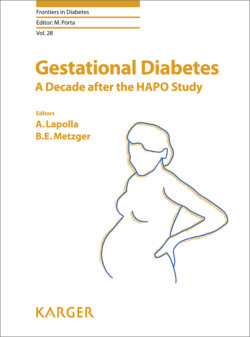Читать книгу Gestational Diabetes - Группа авторов - Страница 41
На сайте Литреса книга снята с продажи.
Metabolic Management of Obesity in Pregnancy Metformin
ОглавлениеMetformin is now in regular use in early pregnancy in the setting of polycystic ovarian syndrome and in late pregnancy a pharmacotherapy for GDM uncontrolled by lifestyle interventions. A recent review has summarized the pathophysiology and clinical evidence around metformin in pregnancy [55]. Metformin is seen as promising for metabolic improvements in pregnancy and as such has also been trialed in the management of women with obesity in pregnancy. The effect of metformin on maternal and fetal outcomes in obese pregnant women (EMPOWaR) study randomized 449 obese women with normal glucose tolerance to the addition of metformin of up to 2,500 g/day or placebo between 12 and 16 weeks gestation and continued until delivery of the infant [56]. This study reported no difference in birth weight or birth weight Z score. There were no differences in the frequency of GDM diagnoses, nor in maternal glucose and lipid metabolism at 36 weeks, nor in maternal weight gain. There was a reduction in infant admission to the neonatal intensive care (7 vs. 13%, p = 0.02) in those on metformin. More women on metformin experienced diarrhea (42 vs. 19%, p < 0.0001). Women with BMI >35 kg/m2 were been randomized in another study to metformin 3 g/day (202 women) or placebo (198 women) from 12 to 18 weeks gestation until delivery [57]. There was no difference in birth weight Z score, but maternal GWG was lower (4.6 vs. 6.3 kg, p < 0.001) for those on metformin. No differences were seen in rates of GDM or other neonatal outcomes. Another randomized trial of metformin for overweight and obese women from early pregnancy is currently underway (GRoW trial) [58].
